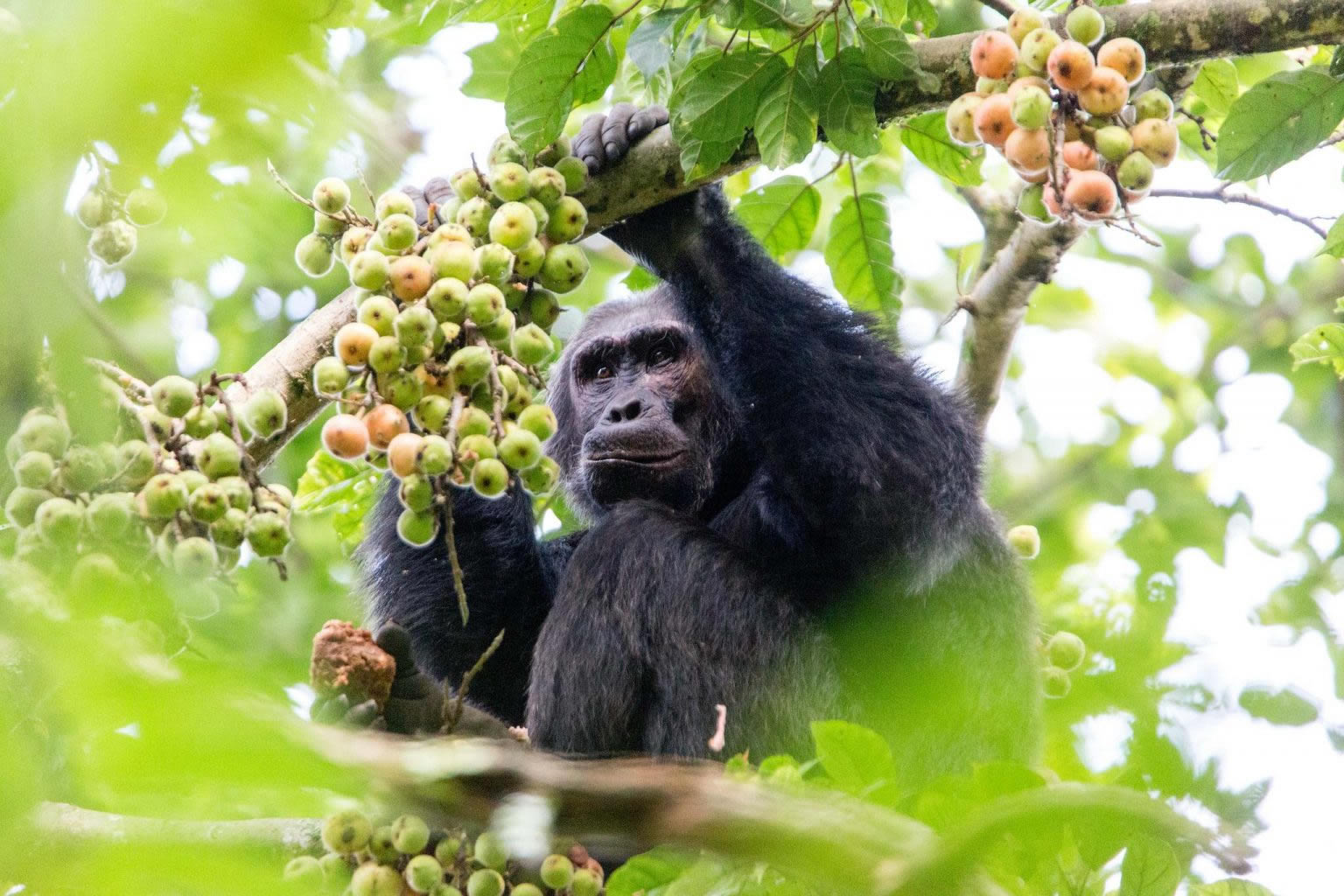Chimpanzee trekking in Rwanda
Chimpanzee trekking in Rwanda is organized in Nyungwe forest. This long stretch of montane rain-forest is the largest in Africa at the moment and a great conservation sight attracting researchers and scientists who are interested in primate research. The forest is part of the wider Nyungwe National Park which now includes the Cyamudongo forest. Nyungwe forest is a key water catchment area in the country producing rains that feed rivers like the Nile in Uganda and others in Congo.

| Chimpanzees are man’s closest relatives. They share many of our traits and are arguably the most intelligent Apes after we humans. They are known to live up to 60 years in captivity. In Rwanda, chimps can be found in three main places – Nyungwe National Park (Nyungwe and Cyamudongo forests) and Gishwati Mukura national park. |
Nyungwe National Park has the highest population of chimps (over 400 individuals) and other primates – 13 species in total. Two chimpanzee communities have been partially habituated in Nyungwe National Park. Most of them live in Nyungwe forest (60 individuals) while the rest are found in Cyamudongo Forest (30 individuals). Chimpanzee trekking is different from gorilla trekking in many ways. Chimps are stubborn, noisy and very mobile. Because they are lighter, they spend a lot of their time on top of the trees unlike mountain gorillas. Mountain gorillas are very gentle and peaceful. They will eat quietly and interact with less provocation and drama in the group. Tracking chimpanzees requires one to be fit enough in order to follow the primates for long periods as they make quick movements both on the ground and on top of trees before settling down.
Chimpanzee tracking in can take between 2 to 6 hours or longer. After following/chasing the chimps for a while, they may settle down and allow you to observe them more closely or take photos. While with the chimps you will notice that they behave just like we humans. You will watch them groom each other, mate, breastfeed, play and start fights. Some members of the group are quiet while others are more vocal. Like humans, they have their group dynamics and internal politics. Although chimps are curious about humans, they will tend to keep their distance.